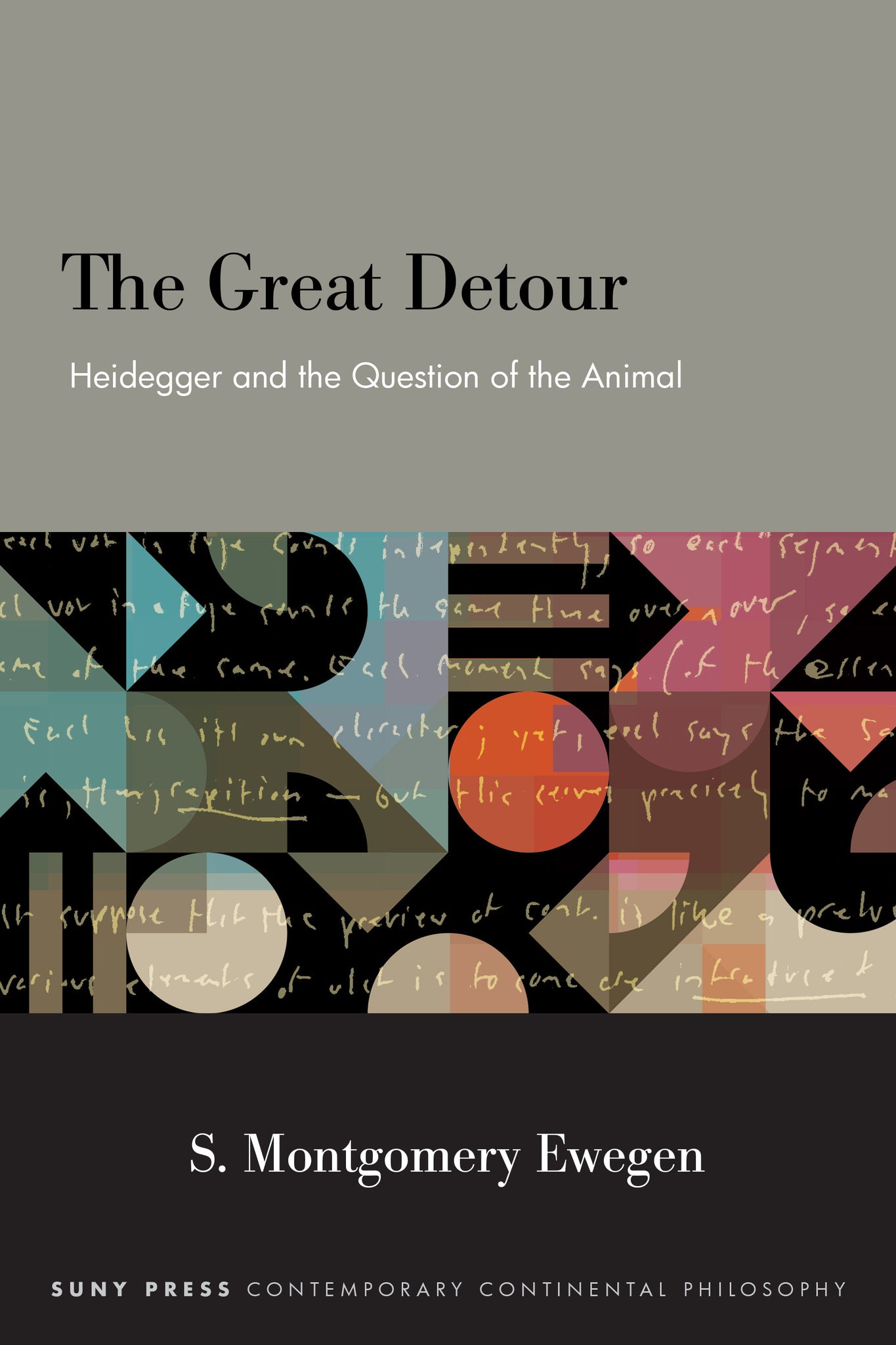We're sorry. An error has occurred
Please cancel or retry.
The Great Detour

Some error occured while loading the Quick View. Please close the Quick View and try reloading the page.
- Format:
-
01 December 2025

An in-depth and unique take on Martin Heidegger's understanding of animality, showing that the question of the animal was central to Heidegger's philosophical project from beginning to end.
The Great Detour offers an in-depth and unique take on Martin Heidegger's understanding of animality, showing that the question the animal's nature in comparison to the human was central to Heidegger's philosophical project from beginning to end. More importantly, by engaging certain key texts from across his corpus, including some of the Black Notebooks, author S. Montgomery Ewegen shows that Heidegger's understanding of animality is much more nuanced than has typically been presented. Whereas most scholars have argued that Heidegger held a somewhat dismissive and ill-informed view of animals (as "world-poor," as lacking language, etc.), Ewegen argues that animals for Heidegger hold an inestimable value, serving as one of the primary ways through which the human is able to become aware of its own being and, indeed, Being itself. In short, the question of the animal was, for Heidegger, indissolubly connected with the question of the human being's relation to Being, the latter of which serves as the focal point of Heidegger's philosophy.


"The Great Detour should be required reading not just by Heidegger scholars but by anyone working in the continental tradition of animal studies. Ewegen has breathed new life into arguments that have presented a fixed view of Heidegger as anthropocentric and has done so by remaining faithful to the texts and thinking not merely against Heidegger but with him, and powerfully so. Heidegger is no longer a strawman for animal studies but, thanks to Ewegen, can now become a crucial contributor for rethinking our human situation on this planet." — Andrew Mitchell, Emory University



